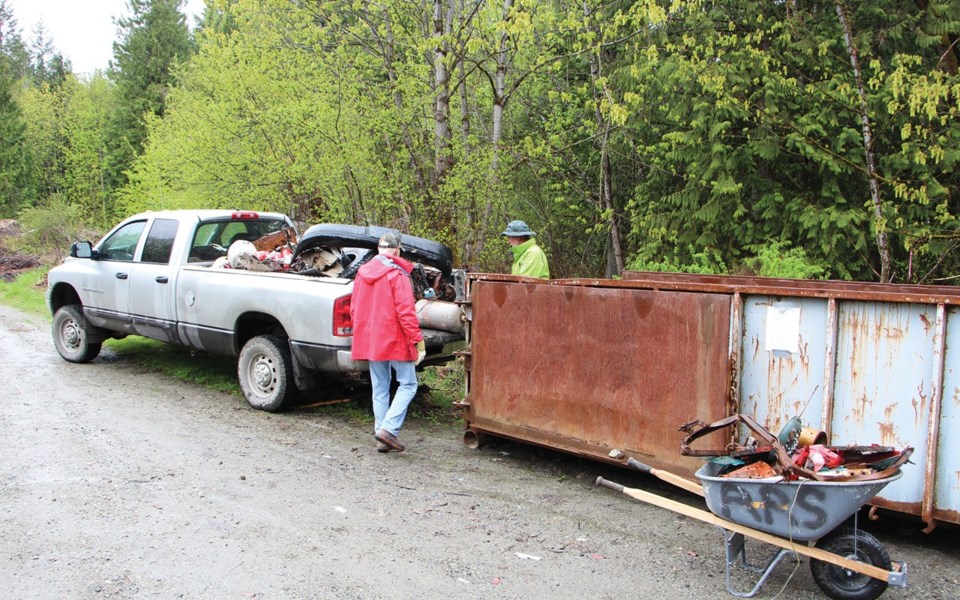The Pemberton Wildlife Association (PWA) is calling on the Squamish-Lillooet Regional District (SLRD) to develop an illegal dumping strategy, saying that the body has already committed to doing so and must follow through.
"They have already committed to doing that plan, but due to staff workload and turnover they haven't been able to complete it," said PWA president Allen McEwan.
Last spring, the PWA sent along a report, prepared by former Whistler Councillor Sue Maxwell, to the SLRD laying out the case for a policy.
It noted that the PWA cleaned up a specific problem site along the Green River back in April 2018, removing six large bins of garbage that included approximately 3,175 kilograms of metal (including roofing, construction materials, and car frames), as well as a dozen mattresses.
And while the Green River site remains in relatively good shape (thanks to the PWA clean-up), the report said that yard waste has once again begun to appear and that could be a harbinger of things to come.
"It [is] felt that the last pattern of activity started with the dumping of yard waste and progressed to other materials once it appeared that this was a dumping site, so this fresh material is of concern," read the report.
Moreover, McEwan recently learned that a freezer—full of rotting meat—had been left at the site.
"The other day I got a call from a Good Samaritan that someone had dumped a freezer out there full of rotting meat or something," said McEwan. "They probably had a disaster at home where the freezer failed when they were on holiday."
McEwan said it's incumbent on the SLRD to develop a plan to make it easy for residents to dispose of their waste, saying that the current arrangement, in which residents must drive to the Sea to Sky Soils facility near Rutherford Creek and pay a tipping fee, isn't practical.
"We believe that it's a local government's responsibility to find an economic and convenient place to take yard waste so they don't start another unofficial dump in the woods," said McEwan. "Certainly, convenience and affordability are the issues we want to work on."
The report also listed a host of suggestions used in other jurisdictions to mitigate illegal dumping.
These include free yard-waste disposal, supporting organizations to clean up sites immediately, and improving communications with the public regarding where to dispose of materials.
When asked for an interview or more information about illegal dumping in the regional district, the SLRD declined to provide either.
In an email correspondence, SLRD Chief Administrative Officer Lynda Flynn said the SLRD board passed a resolution to review "the illegal dumping strategy as noted in the Squamish-Lillooet Regional District Solid Waste and Resource Management Plan" on June 26, and staff will bring a report on the issue at a forthcoming meeting.
"The spokesperson is [Director of Electoral Area D] Tony Rainbow, and he would need this information from staff, which is what is being developed at this time," wrote Flynn.
With fall on its way, McEwan is hoping that a strategy is put in place, and the SLRD addresses the issue of illegal dumping in the regional district.
"In our view [illegal dumping] shows a lack of respect for the land, and it leads to problems with wildlife and invasive species," said McEwan. "It's poor stewardship, and we think that every resident of the Pemberton Valley should be accountable for their own waste and they should take it to the appropriate place."




